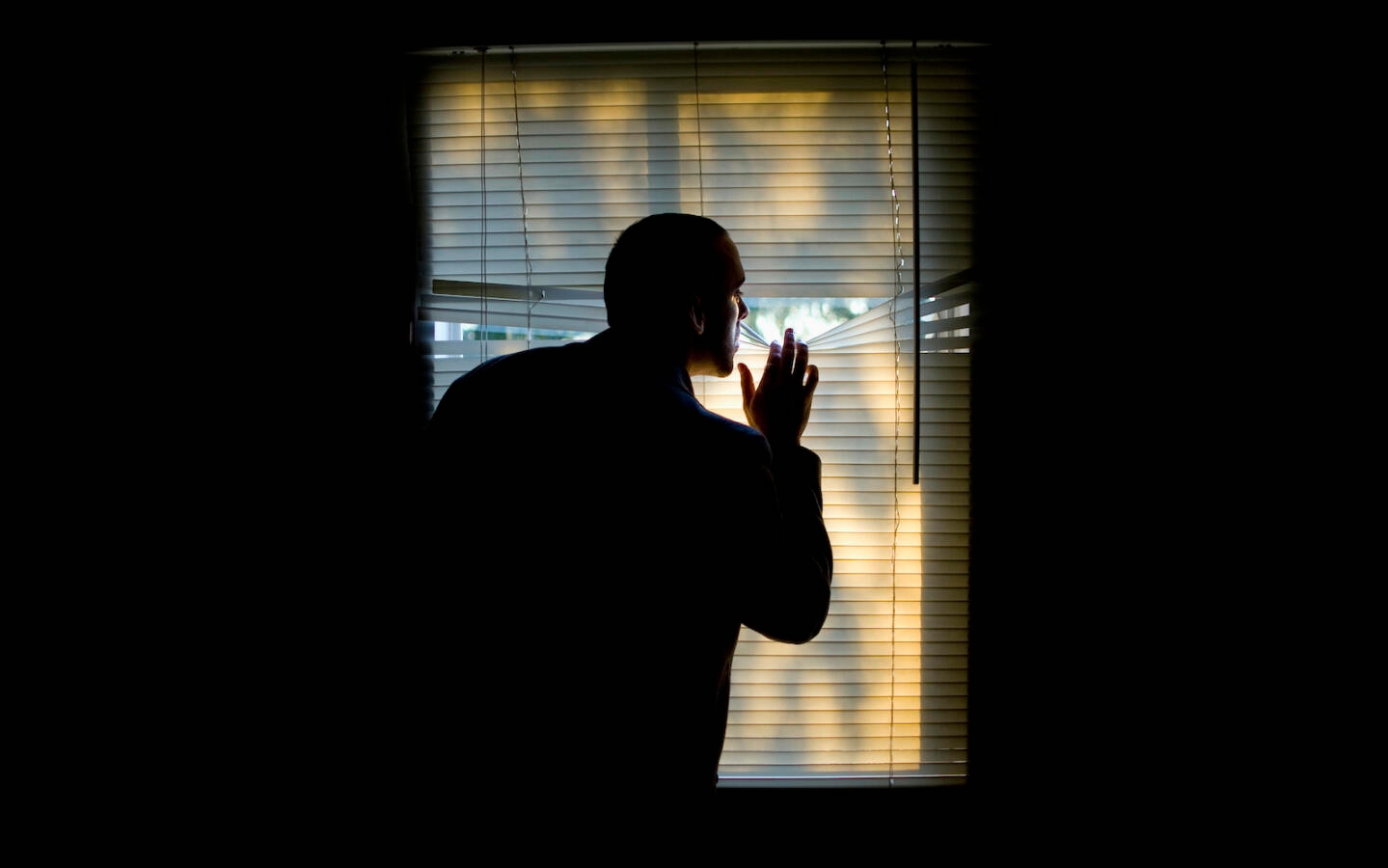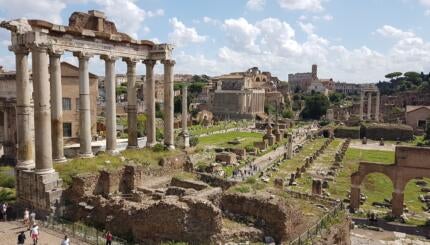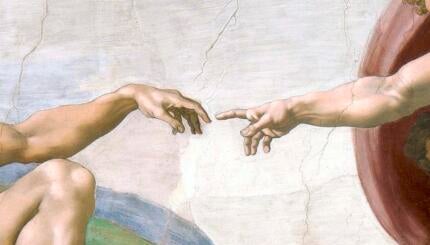This week we entered the quiet, darkening, holiday-free month of Heshvan. As I decompress from the rush of the holiday season and look back over the year’s rich run of inner exploration and communal celebration, I see how Psalm 27 runs like a stream, a thread of liturgical connection, through the landscape of the High Holy Days.
Every year when Elul, the month leading up to Rosh Hashanah, rolls around, I look forward to meeting up with Psalm 27 like an old and cherished friend. At least as far back as the 18th century, rabbis mandated its recitation twice a day from the first of Elul through Shemini Atzeret and Simchat Torah.
A guide and companion for the journey of teshuvah, Psalm 27 is an intimate testament of faith and struggle. Ascribed to the poet-warrior King David, it voices the anguish of a person beset by enemies on all sides and from within. The beleaguered psalmist both summons and affirms divine saving power amidst a sea of troubles.
In her marvelous book Saved by a Poem, Kim Rosen writes of the power of speaking poetry aloud — not by rote memorization, but “by heart.” Learning a poem by heart, she writes, “holds within it the invitation to receive something with your whole self, not just your mind, and to take it into your body with your breath.”
With your help, My Jewish Learning can provide endless opportunities for learning, connection and discovery.
The words of traditional Jewish prayer are mostly poetry, many of them drawn from psalms and other biblical texts that describe mystical encounters with an awesome power beyond human control or comprehension. To commit these words to memory by speaking or chanting them aloud embeds them in my body and draws forth aspects of myself that may be forgotten or hidden to me.
Each year when I begin to live with Psalm 27 at the beginning of Elul, one verse usually jumps out at me, drawing me toward the crux of my spiritual work for the year ahead. This year that verse was the very first one: “The Wellspring of Being is my light and my saving grace — whom shall I fear? The Wellspring of Being is the strength of my life — of whom shall I be afraid?”
As that verse seeped into me, a melody emerged. I chanted it over and over, absorbing the power of its cadence in the original Hebrew, opening to receive it in my body, and recognizing how, in some way, it already resided there, interrogating me: Whom shall I fear? Of what shall I be afraid?
We live in fearful times. Fear and its many minions — panic, terror, anxiety, worry, nervousness, unease, timidity, distress — are well known to many of us: the dry mouth, the racing heart, the sweaty hands, the confusion, the wakeful hours in the night. In the precariousness of living in this time of rapid change and seeming chaos, the human nervous system can tremble in constant overload. I often feel paralyzed, isolated, fearful of engaging fully with life.
In a piece titled “I Am (Not) Afraid,” Rabbi Avi Strausberg poses the question: “When do I allow my fear to guide me and prevent me from placing myself in a dangerous situation, and when, by giving in to fear, do I actually stop living?” She cites a midrash about Noah, the hero of this week’s Torah portion, who preserves life in the face of a disastrous climate event by following divine instructions to build a boat and to pack his family, along with representatives of every living species, into it. The midrashists must have understood the trauma of such an experience when they speculated that, after Noah has been in the ark for well over a year, only God’s command to leave could finally compel him to take that first step onto dry land. (Bereishit Rabbah 34:4)
My verse from Psalm 27 comes to me this year as spiritual medicine, as a healing incantation, as the anti-venom to the snake-bite of fear. It challenges me to leave the safe, stifling confinement of my ark, to seek open spaces, to turn my face toward the light and see the rainbow in the sky, a symbol of care and benevolence, and to invoke again and again the sensations of being held, cherished, and strengthened.
To assert one’s faith in the power of love and goodness, to reach toward a saving grace that reassures and infuses the heart with courage in this time of upheaval and war, pandemic and climate disaster, is a radical act that defies appearances and empowers us to stay in the present, in the Presence, and to hold fast to a vision of the possible. Such faith-filled resolve fortifies the body and strengthens the spirit. Fear is inevitable, the psalmist tells us; courage is the unstoppable force, sourced from within and beyond myself, that impels me into life anyway.
Between Rosh Hashanah and Yom Kippur, I went to a bicycle store in Berkeley and bought a touring bike, the first I’ve owned in 15 years. It’s a lovely pale green model with 18 speeds. This year I’ll be out in the world, riding on the many bike trails among the coastal redwoods near my home, peddling in the sunshine and the fog, chanting, and strengthening my body and my heart.
This article initially appeared in My Jewish Learning’s Shabbat newsletter Recharge on Oct 29, 2022. To sign up to receive Recharge each week in your inbox, click here.



